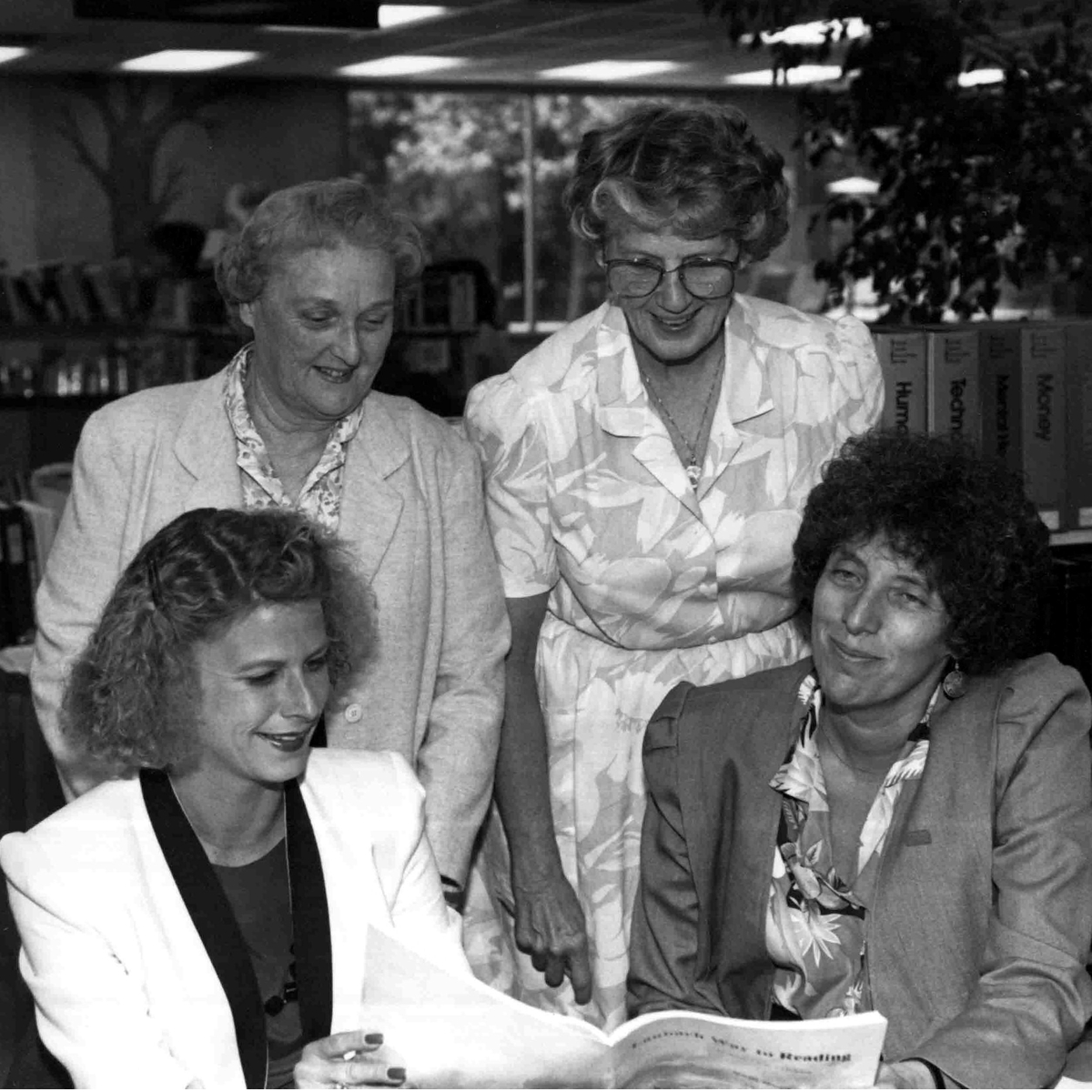Adult Literacy Project has Success Built into its Program
Adult Literacy Project has Success Built into its Program

Pam Minkler's AT&T business card reads "Strategic Development, Western Region RTM." But four hours each week, the strategic development that concerns her is that of the adult non-reader she tutors.
Three years ago, Pam was looking for a volunteer niche because "I wanted to do something good. Reading is important to me and I liked the idea of helping people learn to read." The Adult Literacy Project fit her specifications perfectly and three years and three students later, she is still an enthusiastic booster of the program.
Irene Yarrow, program director of the Alameda County project, says Pam's enthusiasm and involvement are pretty typical of the volunteers who choose to work with adult students. The program requires a six-month commitment including two Saturday training sessions, two update sessions and at least one tutoring session per week.
Startling statistics indicate that one adult in five cannot read and write. According to Yarrow, functional illiterates exist due to many factors. Many fall through the cracks of public schools. Many come from families where parents can't read. Many older students in the program went to school before mandatory education laws existed. Some were ill as youngsters or their families moved frequently, causing them to miss a lot of schooling. Whatever the reasons, the Adult Literacy Project gives them a chance to start over.
Volunteer tutors also come to the program from a variety of backgrounds and for many different reasons. Pat Baratta of Pleasanton was a retired school teacher who had taught English for many years. For her, tutoring adult non-readers seemed a natural. For eight months she tutored a man in his mid-50s. His greatest thrill was when be was able to read street signs and get to his destination without help.
Millie Aubin of Dublin had finished high school, but wasn't quite sure if she could handle the tutoring. But the training sessions and the Laubach system, designed specifically for use in reading instruction for adult students, have made Millie's job easier.
Her student is a 37-year old Korean born woman who owns her own business. Twice a week from 7:30 to 9:00 am, Millie tutors the woman in her beauty shop before business hours. "She's an eager student and is doing great. It's been 40 years since I've been in school so it gives me a run for my money."
Many of these adult non-readers have tried other programs, even have paid for special tutoring. But with this program, they are experiencing real success. Chris Green is the project staffer who carefully matches tutors with students. Compatibility and mutual respect are keys to the program's success and the loyalty and creativity of the tutors is something Yarrow and Green really appreciate.
But the real joy comes when a success story is told in one of the tutor sharing sessions. These sessions occur every month or so and give the tutors a chance to compare notes and share successes and frustrations.
Minkler had a funny story to tell of her student's recent achievement. Her current student is a 40-year old man whom she tutors two nights a week. She says "for the first time in his life, he understands why he couldn't learn to read. His personal victory came with being able to read the instructions on a box of Sloppy Joes and prepare dinner for his family." He also told Minkler that he had been able to read the precautions on a box of snail poison and summarized his achievement in this way, "I fed my family and killed my snails and didn't mix them up!"
Like the Marines, the Adult Literacy Project is always looking for a few good men... and women. The next tutor training session begins on August 13. Call the Pleasanton Library at 462-3535 or Yarrow at 881-6337 to become a volunteer and help change someone's life for the better.
To see a reproduction of the original article and edition of Pleasanton Pathways, visit: August 11, 1986 Pathways.




